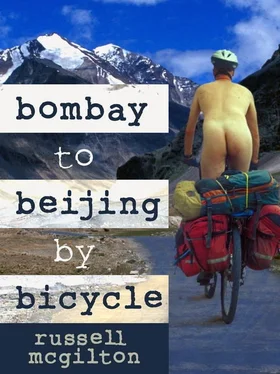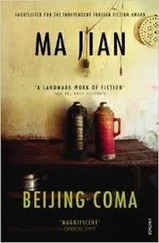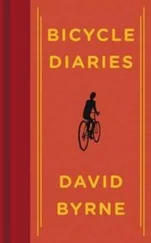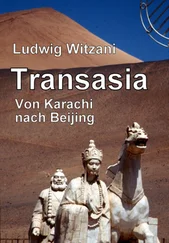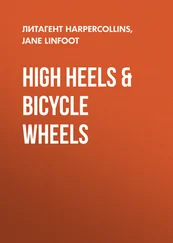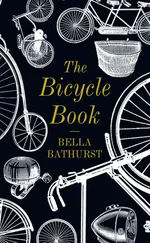Russell McGilton
BOMBAY TO BEIJING BY BICYCLE
In loving memory of my father – may you still play the golden Hammond – and Krista Bernard, cycle adventurer and inspiration to many
‘Congratulations,’ grinned Dr Chawla as he handed me my blood test result. ‘You are having the malaria.’
‘Malaria?’
‘Yes, yes.’ He smiled again as he slouched back in his chair and scratched his crotch. ‘Wonderful.’
‘Tell me, Doctor,’ I said, wiping sweat from my eye, ‘is this the kind of malaria that goes to your brain… and then kills you?’
‘No, no, no, no,’ he said and, just before I could breathe a sigh of relief, ‘not yet.’
I tried to relax as my head slowly slid off my shoulders. Here I was in the middle of rural India, miles from anywhere while some deadly malaria strain coursed through my veins.
‘Do many people die from this around here?’
‘Yes, many!’ He smiled brightly, then flipped me over a squeaky hospital bed and whacked a needle in my bum.
It was at this moment, with my face jammed against a stained pillowcase and a prick rammed in my rear, that I wondered how I got here, why I came here and why I wasn’t at home stuffing my face with chocolate biscuits and watching erotic Spanish movies on SBS: ‘¡ Me golpearon con un burro, Victor !’ [i] ‘Beat me with a donkey, Victor!’
There were numerous reasons, but one in particular that had pushed me over the edge and onto a plane. You see, some months prior to my feverish dilemma, my father had died. I inherited money and wanted to do something responsible with it, such as get a mortgage. This, of course, meant getting a steady job, something more permanent than my recent endeavours: a cameo on Neighbours and then, upping my range, a job as a silhouette in a commercial. (I was fired because my bald head was, to quote the director, ‘too shiny’.)
My writing, on the other hand, was gaining much better traction with numerous articles published in newspapers and magazines. So I decided to knuckle down and get a job as a journalist.
Try as I might, ten months later I had been turned down by every newspaper, magazine, website, zine and pamphlet publisher in the country. But just as I was flirting with the possibility of becoming a stringer [ii] A freelance correspondent
(‘Ah! The civil war in Sudan looks nice…’), I received a call from the Age newspaper. They wanted me to come in for an interview. This was miraculous in itself; I had sat an exam for that very privilege and was sure I had failed.
I groomed myself in the art of interviewing. I read all the books. I role-played with friends. I even sought professional advice from a careers counsellor. I was going to crack this baby.
But, as I was about to learn, no matter how well I prepared myself, no matter how badly I wanted to change the course of my life in that year of 2000, fate sometimes just decides to have her way with you.
‘Let’s pretend for a moment that you’re in a time machine,’ said Colin, a serious man with a bald, freckly head amid a panel of tight HR suits. He had been a newspaperman for 20 years and had the paper cuts to prove it. ‘You can go anywhere you like, at any time you like. Whom would you interview?’
My career counsellor, concerned at my habit of blurting out whatever was on my mind, had advised me to ‘pause and marshal my thoughts’. But old habits die hard.
‘William Burroughs.’
‘Why?’
‘’Cause he shot his wife in the head.’
The panel of interviewers raised their eyebrows one after the other like a Mexican wave.
‘Why else would you interview him?’ Colin pressed.
‘Er… he was into some pretty wild drugs. Not that I’m into that kind of thing!’ (A damned lie.) ‘It’s just that… he wrote about the most amazing things.’
‘Such as?’
Oh, well he wrote this story about baboons taking over the US senate and fucking all the senators in the – stop! Brain! Stop!
‘He used to cut up narratives, I mean, from books, and create a new story.’
‘Any other reason?’
My mind went blank. Well, not quite. ‘Er… ’cause he was into little boys?’
Oh, Christ! What must they be thinking? That I’m a wife-shooting, drug-taking paedophile?
Colin and the suits shifted in their chairs.
‘Now, we don’t normally do this, but we made an exception for you.’ He pulled out my exam paper.
Exception? What exception?
‘Looking at the questionnaire, it seems that you don’t know very much.’
‘Pardon?’
‘You got less than a third of the questions right.’
‘Well, not exactly,’ I stammered. ‘I mean… it’s just that… it’s just that I don’t know the answers to those questions!’
‘Do you think it is important that a journalist should know a lot of things?’
‘Well… yes. Yes, of course.’
‘Let’s move on.’ Colin flipped over the exam paper. ‘The writing component. Now tell me. In your defence from the prosecution, namely us, how would you defend yourself from the very obvious mistake in your story?’
I swallowed. ‘Mistake?’
‘Yes. In your story from the police report you have put the number of the crack house as 32 Audrey Street when it is quite clearly number 23 Audrey Street on the fact page.’
He showed me my horrid blunder.
‘How do you defend yourself against such an inexcusable mistake? A mistake that could have had us sued by the people at 32 Audrey Street if this story went to print.’
‘You see,’ a revelation struck me, ‘under your code of ethics you wouldn’t have been allowed to print the address of the victim.’
‘Then why did you put it in your story?!’ Colin and the suits chorused.
‘Ah, that’s because I didn’t know about the code of ethics before the exam!’ I said, throwing a triumphant smile. They didn’t smile back.
* * *
Later that evening
‘Anyway,’ I said to Alan, a good friend of mine, splashing puddles of red wine around his house, ‘what was wrong with my answers?’
‘Well aren’t journalists supposed to be able to argue a point? You know, present a lively discussion?’
‘Oh, Alan, I don’t know how to argue. I mean, I’m an actor—’
‘S ooo , you’re an actor now ?’
‘Look. What did they expect?’
‘A journalist,’ he sighed heavily, letting the conversation deflate him. ‘So what are you going to do?’
At this moment, the memory of my father’s death seemed to squeeze the knee of my mortality just a little tighter, asking ever so impatiently, ‘What exactly are you doing with your life?’
For some time I’d been harbouring the idea of writing a travel book and rather than let that ship sit in dock and sink (like my father who never accomplished what he wanted) I was going to make it set sail.
So looking for inspiration I found myself in the travel section of my local library, perusing through a rather obscure book entitled Full Tilt by Dervla Murphy.
Murphy was a stout Irishwoman with a head the size of a bar fridge, [iii] Apologies to Ms Murphy. She doesn’t really look like that. To be fair, I have a head that looks like a squashed potato
who in 1963 cycled from Dunkirk to Delhi. She endured one of Europe’s worst winters, was attacked by wolves in Yugoslavia, travelled through Pakistan’s baking 50-degree heat, copped a gutful of dysentery, and was forced to shoot at bike thieves in Iran.
It sounded just the ticket for me!
Читать дальше
